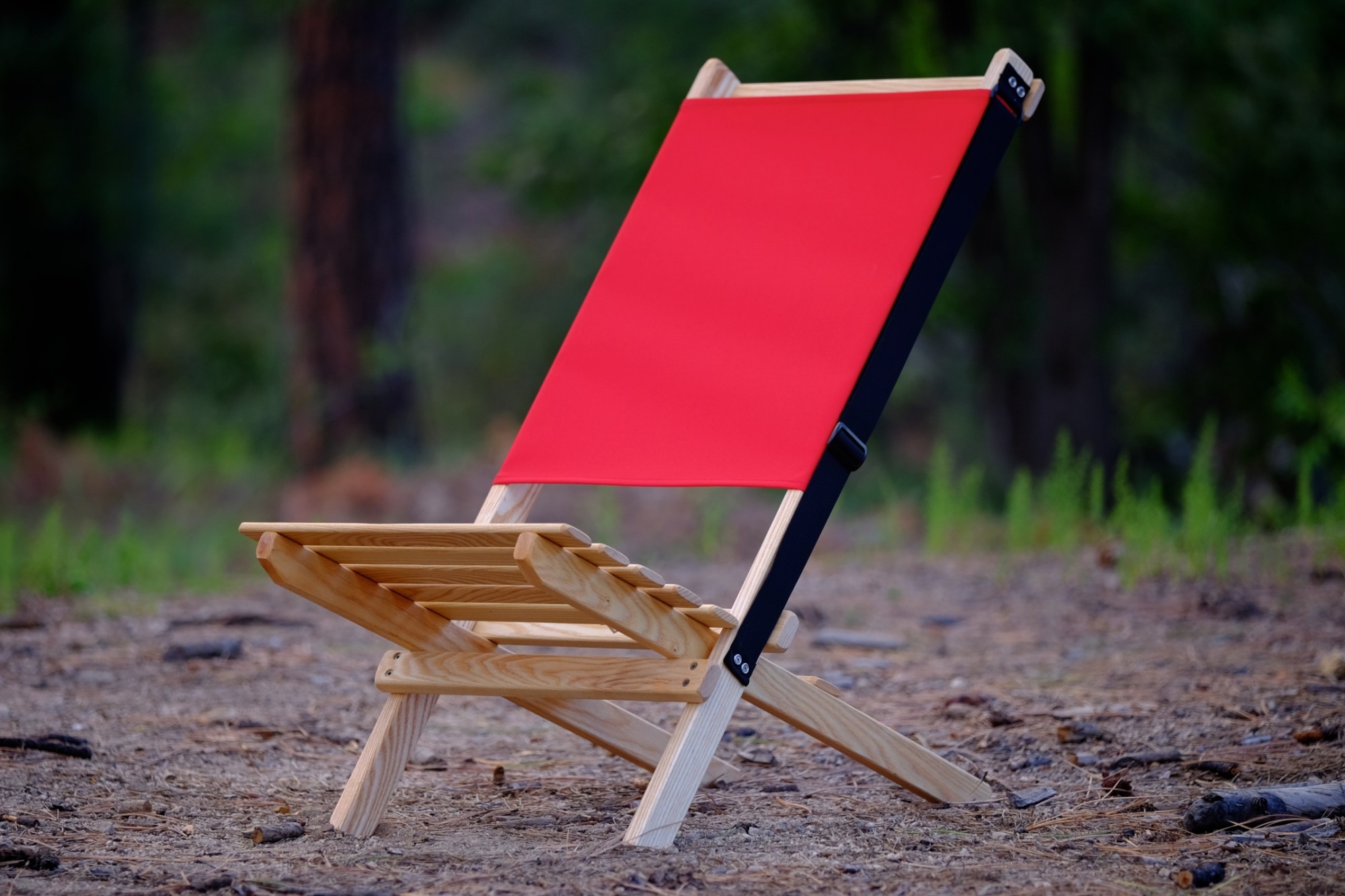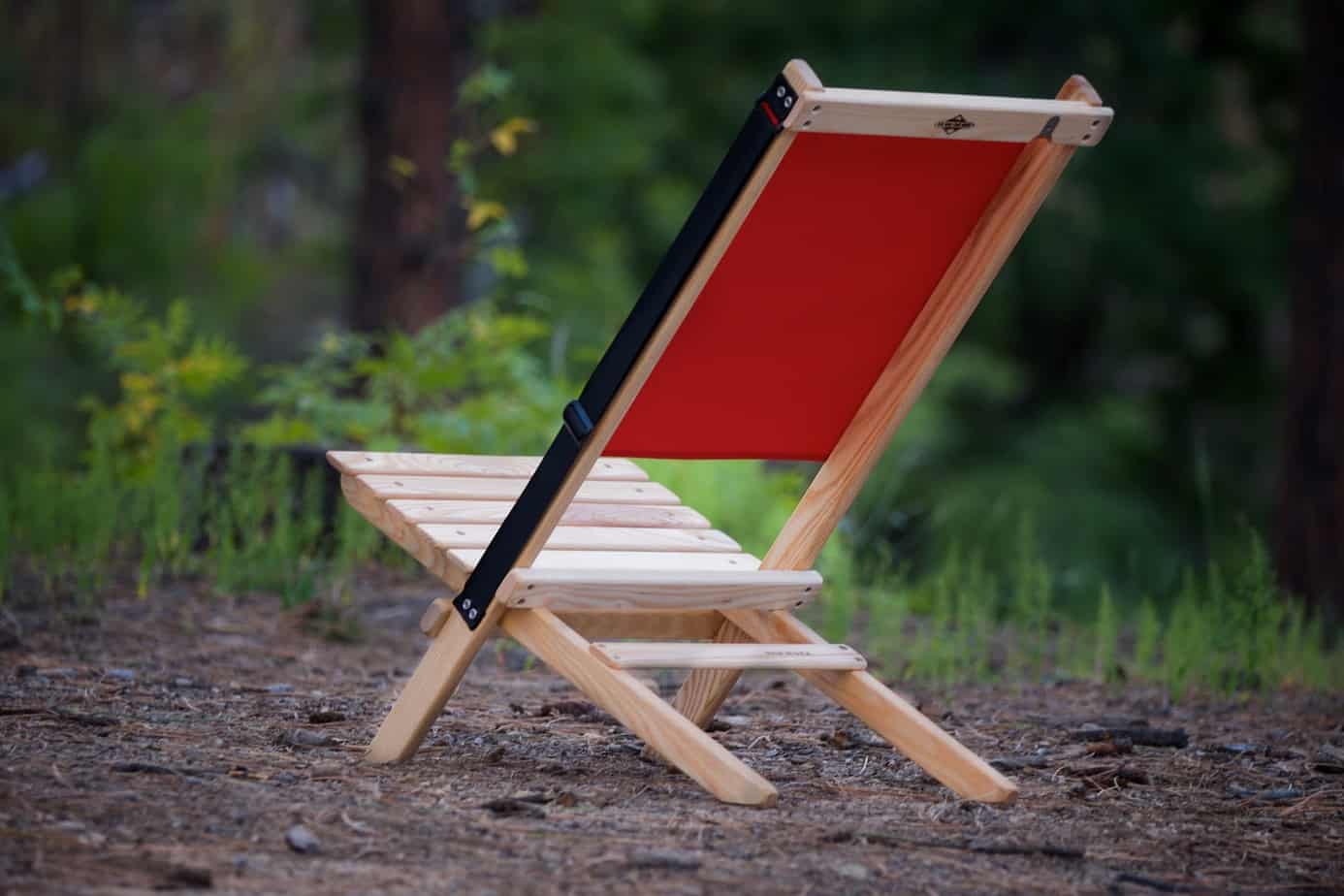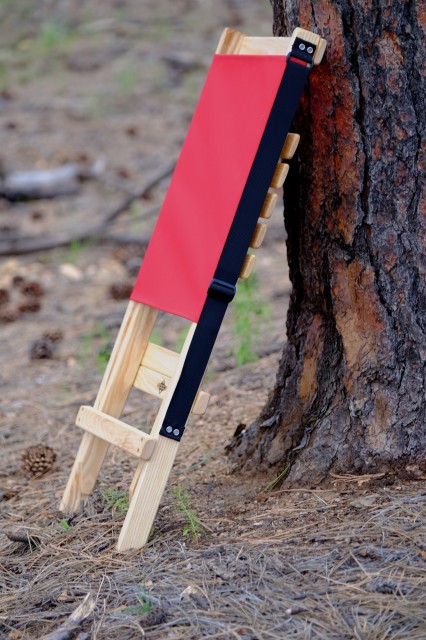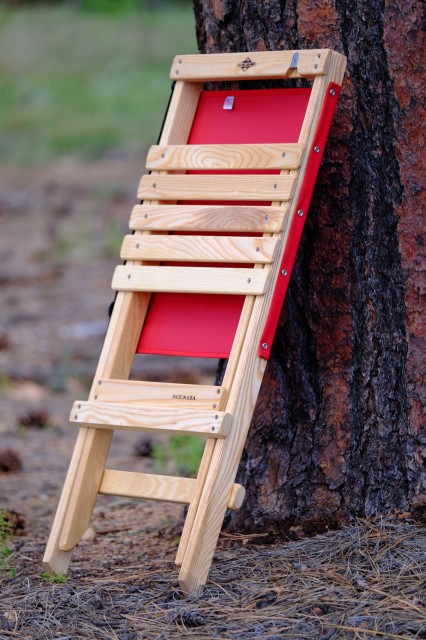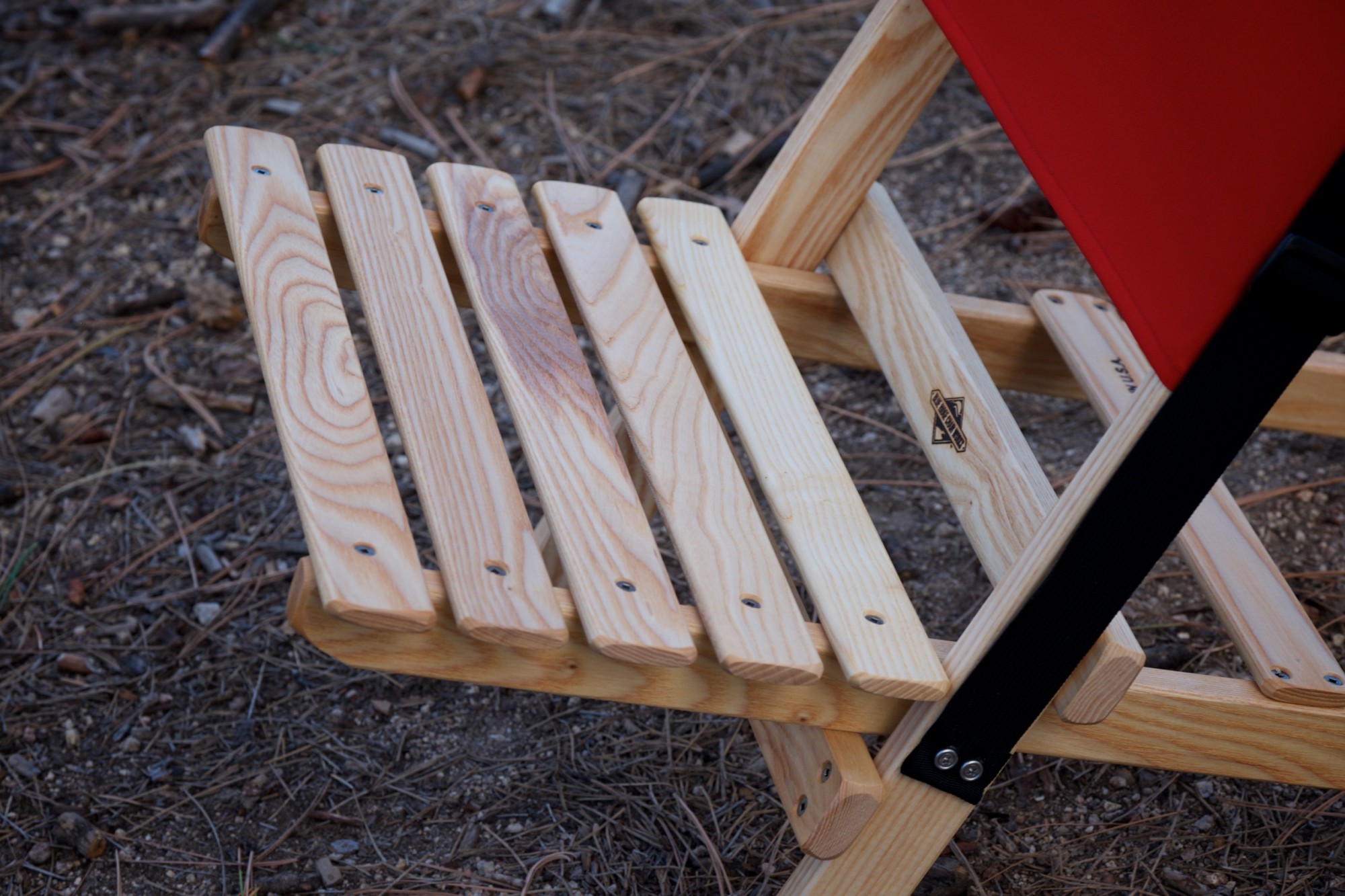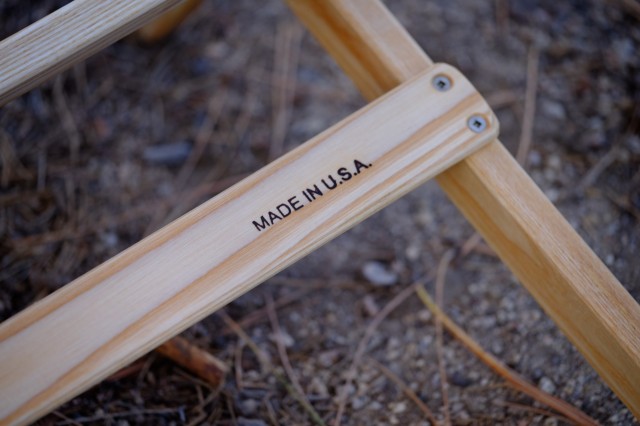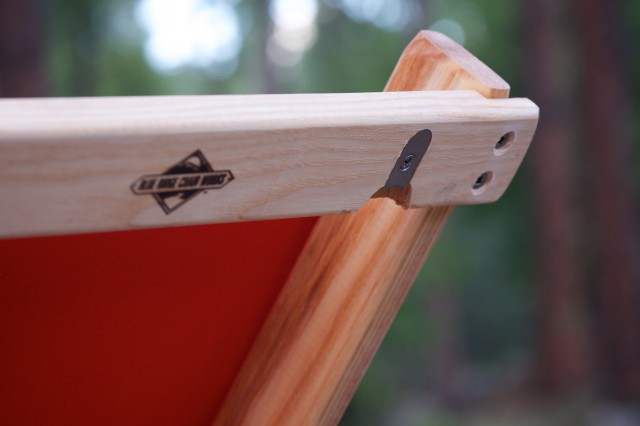I have only met the founder of Blue Ridge Chair Works, Alan Davis, a handful of times but every encounter not only makes me want to buy one of his handmade products, it gives me the sense that I should be outside––doing something fun. He has an infectious charisma, genuine passion for what he does, and I get the impression he could tell endless tales of a lifetime adventuring on the wild rivers of West Virginia.
Alan’s story, and that of his company, is pure Americana. An avid river runner since the late 1960s, he parlayed his love of the water into a thriving business. That journey included learning how to make wooden canoe and kayak paddles, and eventually the backcountry furniture that fills the growing Blue Ridge Chair Works catalog. Don’t let the name fool you. Alan makes far more than chairs.
After talking to him for the first time about his business I admit I had a vision of Alan in a small workshop toiling over a piece of wood as he crafted chairs one at a time. It may have started that way, but that’s not how things are today. From his main factory in Franklin, North Carolina, a team of 100 skilled employees churn out a steady stream of chairs, tables, and accessories, all made of top quality materials.
The classic offering, and namesake of the company, is the Blue Ridge Chair. I have reviewed a dozen camp sitters over the years and owned just as many. In that time I have learned that I love to hate camp chairs. There’s always something about each one that gets my goat and makes me want to return to just sitting on a stump. The first time I used the Blue Ridge Chair, I think my first response was, “Hey, this is nice.”
Unlike other camp chairs, the Blue Ridge Chair doesn’t come packaged in a bag full of parts, nor does it require a six-step folding procedure to set up. It has two components: a back panel and a sitting surface. To set up the chair you slide the sitting half into the back half, and in less than three seconds, you’re ready to plop down. When folded, those two pieces slide together for easy transport. It may not pack small, but it does pack flat. I’ve found it has been easy to slip into my vehicle and the packed size has yet to be a challenge. It also has an attached webbing shoulder strap for an easy carry. Whereas many camp chairs feel wobbly or constricting, Alan’s chair is solid, comfortable, and has a gentle recline that feels pretty relaxing. I wouldn’t say it is a plush chair, but I can lounge in it for hours comfortably.
The digits
- Weight – 9 pounds
- Dimensions – 16w x 24d x 29h
- Max capacity – 300 pounds
- MSRP – $113 and available in four colors
The wood used in the Blue Ridge Chair is the same kiln dried Ash hardwood as used in all of his furniture. The chair back is made of heavy polyester fabric which is fade resistant, extremely durable, and still retains the classic look of old-school cotton canvas. Finished in Danish wood oil and held together with high quality stainless steel fasteners, this is unlike most camp chairs destined to have their last adventure in a dumpster. These are products built to be handed down from one generation to the next.
The “Made in USA” label is burned into the wood with more than just heat, but American pride. And, the built-in bottle opener is pretty sweet, too.
As much as I love the chair itself, I find I’m equally drawn to the company. Most nights of the week I end my day popping the cap off a cold bottle of beer with a Blue Ridge Chair works Cap Lifter that Alan gave me. It’s not just a darn fine bottle opener, or a promotional tool intended to sell more product, it’s part of Alan’s commitment to zero waste. That’s the mark of a guy who not only understands business, but has a genuine appreciation for the environment and responsible manufacturing.



